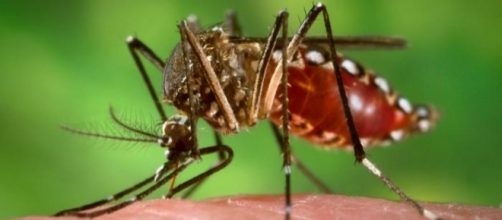Zika virus is one of the most significant health-related issues of the modern age. It is spread by theAedes aegypti, or in other words, themosquitoand it is relatively difficult to fight. Over two billion people in Asia and Africa are at risk of being infected with thevirus as reported in the journal The Lancet Infectious Diseases. People from India, Nigeria, and Indonesia have more of a chance of getting the infection as the number of people coming from Zika endemic areas to these areas may reach up to 5000 per month. Moreover, Philippines, Pakistan, Vietnam, and Bangladesh, are especially vulnerable to Zika virus outbreak as these countries have limited resources with regards to health and medicine infrastructure.
In the continental U.S., Florida is the only place where thisvirus is actively circulating. However, some populated areas have already developed the immunity against the infection due to previous outbreaks in those areas; thereby, reducing their chances of getting the infection.
Problems related to Zika virus infection
Zika infection results in mild symptoms such as joint pain and rashes in most of the people. However, it can also result in severe brain damage in the fetuses if pregnant women are infected.
In the year 2015, theinfection resulted in a significant rise in the number of children being born with extraordinarily small heads – a condition known as microcephaly. However, researchers are still unaware of many adverse outcomes that can be caused by the viralinfection.
Spread of Zika virus
Researchers note that a huge number of people are living in such environments where it becomes difficult to detect, prevent, and respond to the virus. It is also often said that testing the mosquitoes to find thevirus in them is just like finding a needle in a haystack. However, researchers are trying to find every possible mechanism through which the virus could spread, and species that are involved in transmission of virus.
Reportedly, 65 countries as well as territories are facing continuing viraltransmission; recently the virus has reached Africa. Zika virus infection also affected the Olympics. Zika spread in the U.S. is not of significant nature as compared to its spread in the Caribbean and Latin America.
This is due to the use of window screens as well as air conditioning, which help to block infected mosquitoes from spreading the virus, moreover, Americans live in less crowded conditions.
It is important to note that travel and trade could help thevirus in moving from one part of the world to the other part. Climate has also an important role in the spread of the virus; researchers are of opinion that Zika can spread more heavily during the summer months, especially when people travel between America and other areas of the world. Moreover, the warm temperatures of summer also contribute to increasing the lifetime of mosquitoes that carry the virus. It has also been reported that mosquitoes in or around the houses of people that already have different infections have more chances of contracting the virus this, therefore, can easily lead to the virus spreading to normal people.

